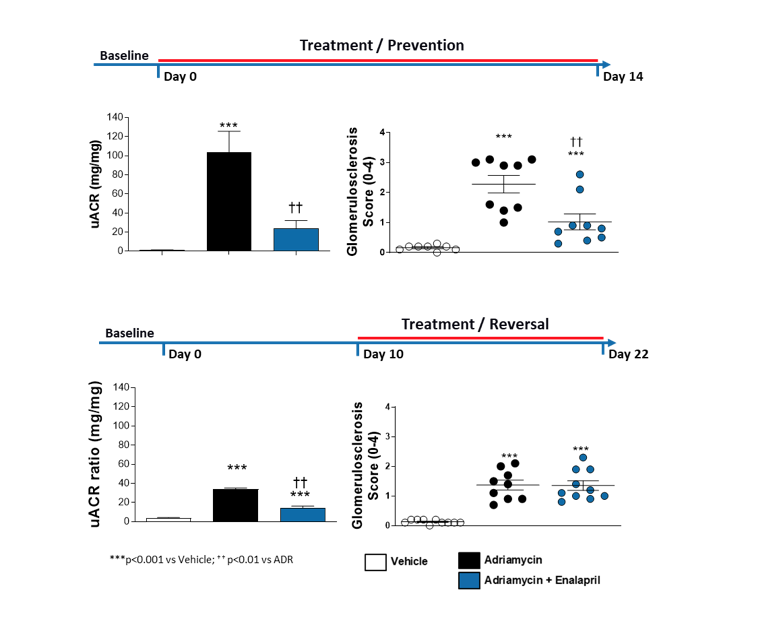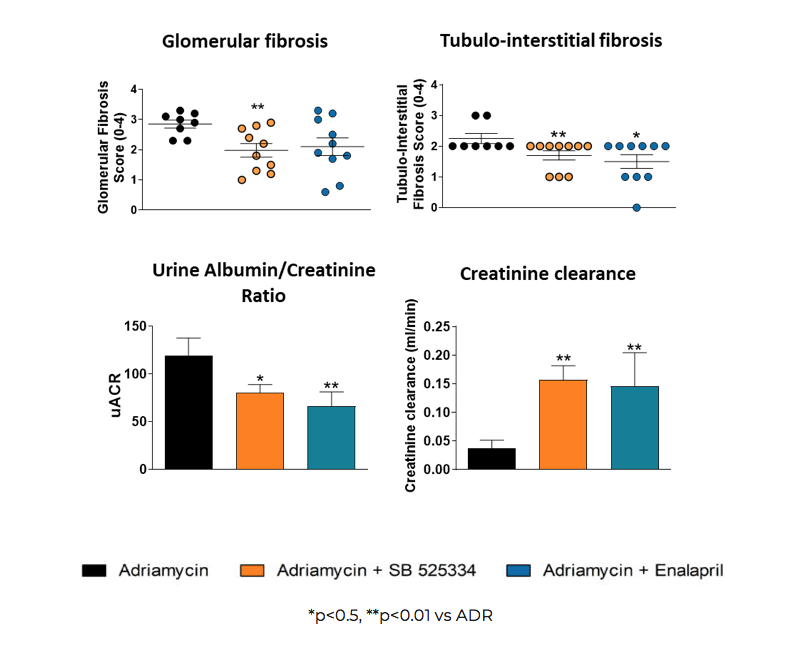Adriamycin-induced model of focal segmental glomerulosclerosis (FSGS) and fibrosis
Focal segmental glomerulosclerosis (FSGS) is one of the most common causes of primary glomerular diseases in adults. FSGS is induced in rodents by administration of adriamycin (anthracycline also called doxorubicin). Structural and functional injury in adriamycin induced nephropathy mimics proteinuric kidney disease in humans.
The model is characterised by:
- Quick induction of renal injury, it occurs within days of Adriamycin administration
- Customisable study design tailored to determine prevention or reversal of phenotype
- Prevention and partial reversal of the phenotype has been demonstrated using Enalapril
Prevention and partial reversal of the adriamycin-induced phenotype has been demonstrated using Enalapril

Inhibition of TGFβ receptor I prevents fibrosis in the adriamycin-induced nephropathy model

Get in touch for more information or browse our models of fibrotic diseases.
